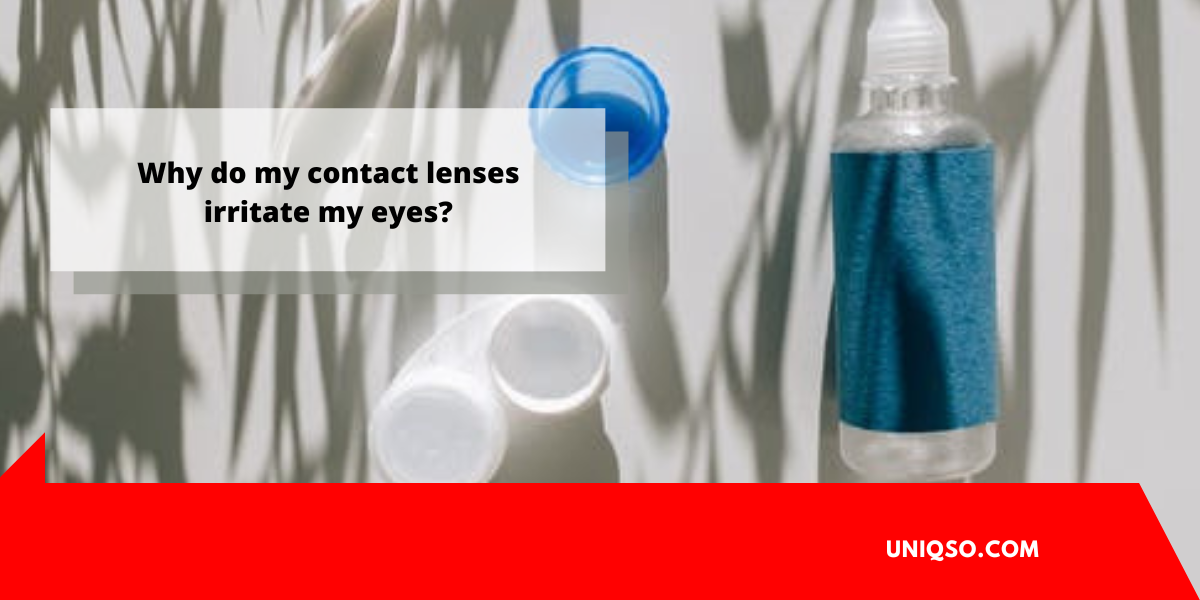Contact lens pain is a sign that something is amiss, and it should be taken seriously at all times.
Contact lens-related eye discomfort is especially concerning since it might indicate that you are developing a contact lens-related eye infection or another significant condition.
If you have unexpected eye pain while using contact lenses or if your contacts ache, do the following steps:

Step 1: Take out and clean your contact lenses.
If one of your contacts aches, remove it and thoroughly clean it with a multipurpose contact lens solution. Also, clean your eyes with sterile saline and/or apply contact lens-approved lubricating eye drops. Replace the contact lens.
If the contact is completely comfortable, it’s probable that something, like an eyelash, got stuck beneath the lens and was causing the discomfort.
But, just to be sure, take out the contact lens again. If you have eye pain after removing the lens, you may have a corneal abrasion or another eye disease that requires quick care. If this is the case, skip Step Two and go straight to Step Three.
If you do not experience any eye irritation after removing the contact lens, but the contact aches after cleaning and reinserting it, move on to Step Two.
Step 2: Examine the contact lens A contact lens deposit or a partially torn contact lens can occasionally produce abrupt eye irritation.
If your eye still aches after cleaning and reinserting the contact lens as instructed in Step One, remove it and carefully check it. If anything seems to be stuck to the surface of the lens or if the lens is partially torn, discard it and replace it with a new one
If the replacement lens is entirely comfortable, the discomfort was most likely caused by a lens deposit or flaw.
However, if the new touch hurts, move on to Step Three:
Step 3: Take off your contacts and go to the eye doctor.
If your eye hurts after removing or changing a contact lens, remove both contacts, put on your glasses, and call your eye doctor right away to arrange an emergency eye check.
You might have a significant contact lens-related eye condition, such as a corneal abrasion, fungal eye infection, or even a corneal ulcer. Your eye may be sensitive to light and watery if you have any of these issues.
Make it a point to inform the doctor’s office that you are suffering eye irritation and would want to be seen as soon as possible.
If it is discovered that your contacts are causing an eye infection or another major condition, the sooner you are seen and treated, the less likely you are to suffer irreversible vision loss.
For more information about light brown contacts, please visit https://www.uniqso.com








